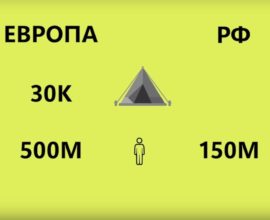What “Kazan orphan” means // Что означает “Сирота Казанская”
What does the phraseological unit “Kazan orphan” mean, where did the expression come from. Why is the orphan from Kazan?
29/08/2023
by Anastasia Vlasova
After the capture of Kazan, Ivan the Terrible, wanting to bind the local nobility to himself, rewarded high-ranking Tatars who voluntarily came to him. Many of them, in order to receive rich gifts, pretended to have suffered greatly from the war. This is where the expression “Kazan orphan” came from. To understand the true meaning of the phrase “ownerless” Kazan, it is necessary to refer to the historical data of the sixteenth century, when Ivan the Terrible managed to capture Kazan. Several centuries have passed since then. Accordingly, the meaning of phraseologism has changed more than once depending on the situation in the social structure of society. For example, the “Kazan orphans” in the Soviet Union were boys and girls who roamed the streets and begged.
The soldiers of Ivan the Terrible tried three times to capture the Kazan Khanate, but the attempts were unsuccessful. There was no order and coherence in the army. And so Ivan the Terrible came up with a cunning move, which consisted in the siege of the city and the gradual narrowing of the “ring”, as a result of which the city was left without sources of food and assistance. The idea was a success, and Kazan was taken even faster than the most experienced warriors expected. The Crimean Khan did not have time to help either, which also played into the hands of the Russian Tsar.
So, Ivan the Terrible took several attempts to capture the rich Kazan, which gave a very strong rebuff to the tsarist troops. However, Ivan managed to fulfill his old dream. It’s one thing to catch it, it’s another to keep it. Grozny began to think about how to subdue the rich Tatars, who did not want to surrender to the enemy. And then the Russian tsar decided to overwhelm the Tatar princes with various privileges and “permissions”.
This played a role: the Tatars obeyed Moscow and even promised to act together with the Russian squads in military conflicts. In addition, the tsar began to grant high ranks in the state apparatus to the Tatar princes, began to distribute lands and territories.
However, there were few Tatars. They immediately realized how powerful and strong they were, how they were feared and respected. Therefore, they began to constantly complain about their humiliating position, the lack of privileges and the like. Ivan the Terrible, and then other tsars, realizing how all this could turn out, constantly rewarded the Tatars with new gifts in the form of tax cuts, an increase in territory, and so on. That is why the Kazan Khanate gradually grew and developed, becoming and turning into what the Republic of Tatarstan is.
About a hundred years after the events described in the 17th century, when Alexey Mikhailovich ruled on the throne of the Russian state, most high-ranking Tatars changed their faith. It must be admitted that they changed not because they realized, but because they were very generously rewarded for changing their faith. Researchers of history find many examples in Russia when these crafty and cunning murzas, rubbing themselves into confidence, were awarded with horses, velvet, satin, fur coats, goblets, pearls, and so on. Such concern for a foreign tribe is easily explained. It always makes a favorable impression on the interlocutor because of vanity. Moreover, such a policy made it possible to make the majority of noble Tatars loyal to the new government.
Phraseologism “Kazan orphan” means a person who constantly complains about a hard life, lives only by begging and begging, striving for personal gain at the expense of other people.
There is another point of view explaining the phrase “Kazan orphan”. The meaning of phraseology goes back to the same era – the capture of the Kazan Khanate by Ivan the Terrible. The fact is that after the conquest of Kazan, many families were completely destroyed, and in some only small children survived. They were ordered to be given up for education to peasants, boyars and even nobles in various cities and villages of Russia. Such children began to be called Kazan orphans. But using the phrase in this sense did not make ironic sense. Rather sympathetic: the phrase was used in relation to a child left without parents and given to the care of strangers, in a culture alien to him.
Sources:
- https://stock.adobe.com/ru/images/homeless-little-boy-near-window-indoors/276661520
- https://stock.adobe.com/ru/images/school-bullying-concept-kid-boy-sitting-at-stair-covering-his-face-sad-young-schoolboy-outside-school-negative-emotion-depression-stress/294162727
Read more: https://englishmag.ru/valdai-international-forum-2022-october-24-27-plenary-discussion-with-the-president-of-russia-vladimir-putin/






